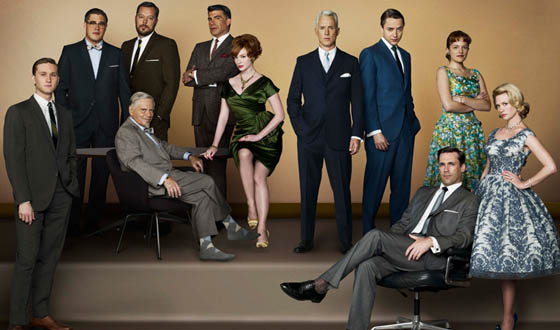If you are in the brand building business, whether agency or client side, it pays to think early about your brand’s online and social media component – no matter what the brand is.
The best case study to illustrate this is what happened to to AMC’s Mad Men, a drama about a Madison Avenue advertising agency Sterling Cooper in 1962, shown in Australia on Movie Extra. Despite critical success for Season 1, and numerous awards including the Golden Globe® for Best TV drama and actor, Season 2 started well but had lost a million viewers in a month in the US. The characters in Mad Men are completely compelling – cigarette smoking, hard liquor swilling and delightfully old school.
What is fascinating is that some blogs started appearing in August 2008, during series 2 screenings, answering modern questions as though they were written by the characters themselves with 1962 sensibilities, in particular Don Draper (the Creative Director) and Joan Holloway (the manager of the secretarial pool) These online characters started doling out advice to fans, and in the writing and the approach they stayed incredibly true to the TV series characters themselves.

Mad Men – powerful brand advocacy at work
In August Don Draper moved to Twitter, and was promptly joined by Betty Draper his wife, and many of the other characters including Joan Holloway, Peggy Olson, Pete Campbell, Ken Cosgrove and Roger Sterling. Twitter suited the question/answer style established on the blogs but with the added bonus of real time interaction, and suddenly, there were thousands of people following the characters and interacting with them. A genuine community formed around these characters on Twitter, and everyone assumed that AMC were behind it in a feat of social media cross promotion.
That was until AMC lawyers contacted Twitter and forced them to close down the Twitter accounts under the Digital Millennium Copyright Act, essentially protects the infringement of intellectual property, citing the characters were owned by AMC and the Twitterers were infringing by using the characters names. Turns out that the social media community was built by fans, the same ones who were obsessed enough to blog in the voice of 1962 Madison Avenue advertising executives. And the Mad Men Twitterers took on the fight, as the blogosphere reeled, and the lawyers were called off by Mad Men’s advertising agency Deep Focus, the accounts were reinstated.
Bud Caddell, a digital strategist fan of Mad Men put together the site We Are Sterling Cooper, and Twitters as Bud Melman to speak on behalf of the Twitter fans at the time of the legal stoushing. The manifesto says so much about this topic:
“Fan fiction. Brand hijacking. Copyright misuse. Sheer devotion. Call it what you will, but we call it the blurred line between content creators and content consumers, and it’s not going away. We’re your biggest fans, your die-hard proponents, and when your show gets canceled we’ll be among the first to pass around the petition. Talk to us. Befriend us. Engage us. But please, don’t treat us like criminals.”

Peggy Olsen & Joan Holloway are both on Twitter
Now the site has links to most of the blog posts and Twitter accounts for the Mad Men Twitter group. And Bud has a great report on the timeline of how it all happened and the fan fiction around what they do.
I became aware of the Mad Men on Twitter when Peggy Olsen started following me on Twitter in 2008, because I had been Tweeting on how much I was enjoying Mad Men. Like any fan, I was delighted to be part of the “fiction” and I voted for Peggy and Betty Draper in the Shorty Awards earlier this year (Peggy won in the advertising category). What is amazing in the entire Mad Men on Twitter saga and We Are Sterling Cooper site is that some of the fans behind the Twitter identities continue to do it for love, and don’t reveal their real life identities. The PR and brand advocacy they’ve built online and on Twitter is worth a small fortune, but the lesson in it for AMC is to embrace, engage and encourage your fanbase community rather than try to shut it down. If their agency Deep Focus had seeded the content, they could not have done as good a job as the fans themselves who Twitter on behalf of the Mad Men characters.
So what are the key takeouts?
- Be brave. Let your customers engage deeply, they may take it somewhere you may not have originally intended, but you can learn from where they lead you.
- No matter what your brand, especially if you are in advertising you have no excuse in setting up relevant trademarks or usernames across all social media platforms, if you want to own the brand identity itself. You can check availability on Username check and link through to each platform to register.
- There may be a fine line between brand advocacy and brand hijacking. I firmly believe that Mad Men on Twitter is pure brand advocacy, but that’s also because I’ve interacted with them myself and know they all have the interests of the show as their focus. Brands should act as facilitators and the starters of the conversation. Brands who are social media savvy will be in the space themselves and engaging with their customers. Hijacking suggests malevolence so rather than just unleashing lawyers willy nilly, check out what is being said and only engage legal when absolutely necessary.
- Push models are so web 1.0. Brand advocates become brand content partners. They co-create and as such give brands an opportunity to sound out and refine ideas, or just build an extended network of influence. You can continue to build your own content, but its in your interests to include the content they produce. You can provide your own platform for your audience to communicate on, or you can aggregate the content from the disparate sources yourself.
- Brand extensions – some of the Mad Men Twitterers also have separate blogs that build on their characterisations. Betty Draper has this great blog which reflects the concerns and interests of an early 1960s housewife.
- Measuring social media effectiveness through engagement and buzz. Mad Men Twitterers can take credit for massive engagement and buzz through creating really long term advocacy and long tail effect. We Are Sterling Cooper continue to track Mad Men references on Twitter and follow those who mention them.
If you have any further thoughts on how brand advocates create social media identies, please comment.
1 Comment
Good topic, great structure, well written, great post @andrew303